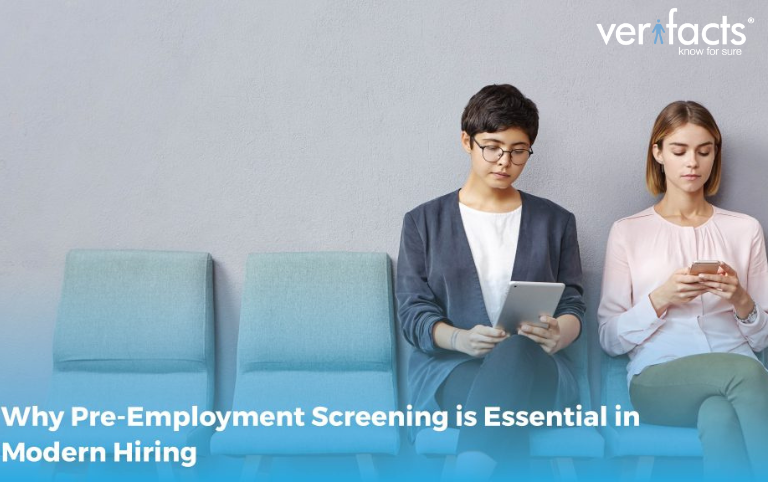
In an increasingly competitive job market, hiring the right talent has become both a priority and a challenge for organizations. Beyond assessing skills and experience during interviews, employers must ensure that candidates are trustworthy, qualified, and aligned with the company’s values. This is where pre-employment screening plays a pivotal role.
Pre-employment screening is a structured process of verifying a candidate’s background, qualifications, and overall suitability for a role. It empowers organizations to make informed hiring decisions, minimize risks, and build a workforce that fosters safety, compliance, and long-term success.
1. 🛡️Ensuring Safety and Security
-
-
A safe workplace is the foundation of employee well-being and organizational success.
-
Criminal background checks are particularly important in industries where employees handle sensitive information, interact with vulnerable populations, or work in safety-critical roles.
-
According to the Society for Human Resource Management (SHRM), nearly 80% of employers conduct criminal checks to reduce the risk of workplace incidents.
-
2. 📜Validating Credentials and Experience
-
-
Resume discrepancies are common—studies reveal that 85% of employers encounter false or exaggerated information in resumes.
-
By verifying academic qualifications, employment history, and professional licenses, organizations can prevent costly hiring mistakes and ensure candidates are genuinely qualified.
-
This step directly enhances credibility and ensures that talent acquisition aligns with organizational needs.
-
3. 🏢Protecting Organizational Reputation
-
-
A single wrong hire can tarnish a company’s image in the market.
-
CareerBuilder reports that 58% of employers have suffered reputational harm due to hiring the wrong individual.
-
Screening helps filter out candidates whose past behavior or actions might conflict with company values, safeguarding trust with clients, employees, and stakeholders.
-
4. ⚖️Reducing Legal and Financial Liabilities
-
-
Employers have a legal responsibility to maintain a safe environment.
-
Negligent hiring lawsuits can result in significant financial penalties and brand damage.
-
With 85% of companies using background checks, the practice is now recognized as a crucial measure to protect against litigation risks and financial losses.
-
5. 📑Ensuring Regulatory and Industry Compliance
-
-
Sectors like healthcare, banking, IT, and aviation have stringent compliance requirements for employee verification.
-
Non-compliance can result in fines, license revocations, or bans from operating in certain jurisdictions.
-
Conducting industry-specific checks ensures organizations remain compliant while maintaining ethical hiring standards.
-
6. 🚀Enhancing Quality of Hire and Retention
-
-
Organizations that prioritize thorough screening report a 15% improvement in hire quality, according to industry data.
-
By hiring candidates who are both skilled and reliable, businesses benefit from improved productivity, stronger cultural alignment, and reduced turnover rates.
-
To achieve these benefits, companies typically include several verification layers in their screening process:
-
🕵️Criminal Background Check: Identifies past criminal activity to ensure workplace safety.
-
📂Employment Verification: Confirms accuracy of work history, designations, and achievements.
-
🎓Education Verification: Validates degrees, certifications, and academic qualifications.
-
📞Reference Check: Provides character and performance insights from former colleagues or supervisors.
-
💳Credit Check: Evaluates financial responsibility, particularly for roles involving financial transactions.
-
📜Professional License Check: Verifies credentials in regulated fields (e.g., medicine, law, accounting).
-
🌐Social Media Screening: Assesses digital footprints for professionalism, ethics, and alignment with company culture.
-
💉Drug Testing: Detects substance use in safety-sensitive and compliance-critical roles.
🏆 Conclusion
Pre-employment screening is no longer just an HR formality—it’s a strategic advantage. By:
✔️ Mitigating risks
✔️ Validating credentials
✔️ Protecting reputation
✔️ Ensuring compliance
✔️ Enhancing quality of hire
… organizations build a workforce that is safer, more reliable, and aligned for growth.
In today’s fast-paced business world, every hiring decision shapes the future. With robust screening, companies can make responsible, data-driven, and future-ready choices. 🌍

